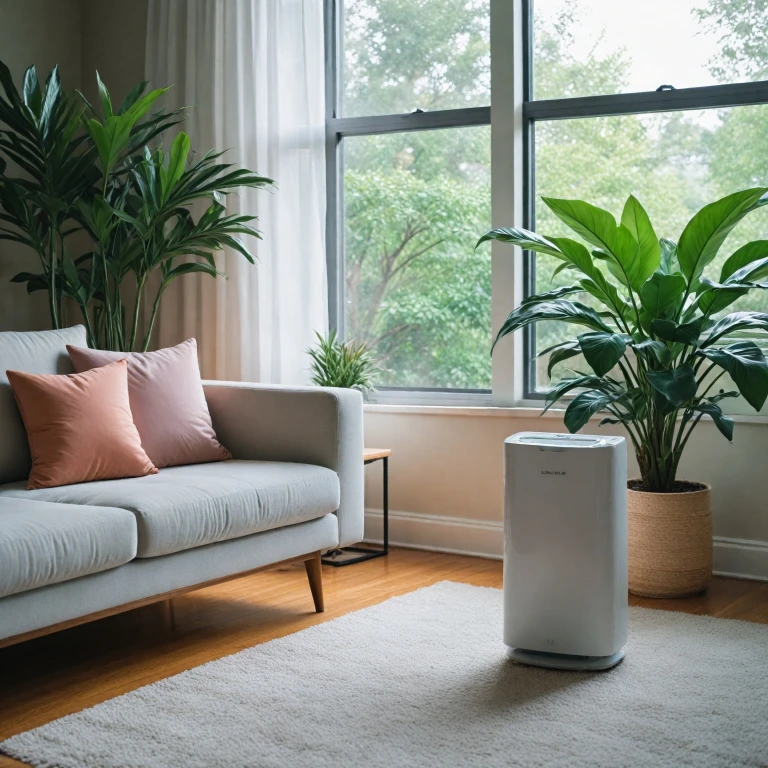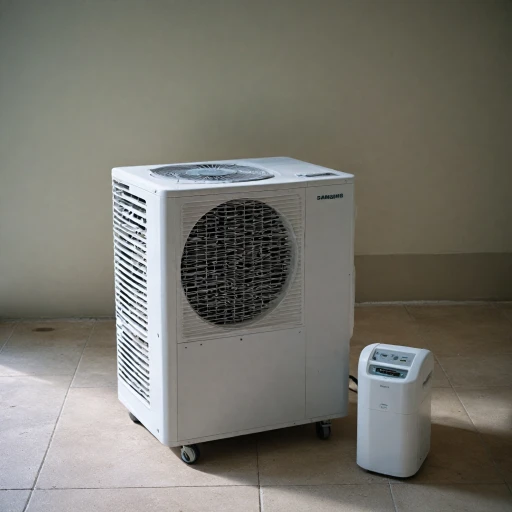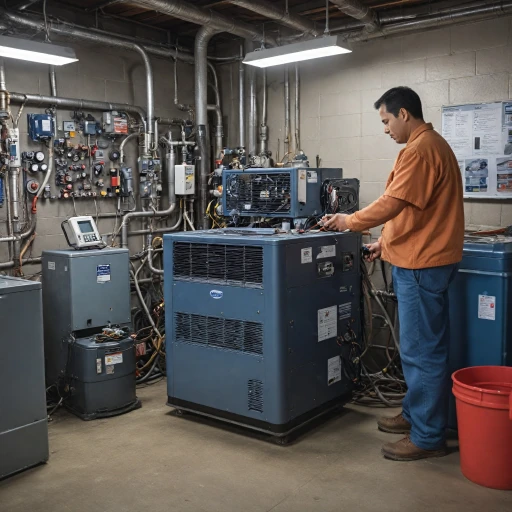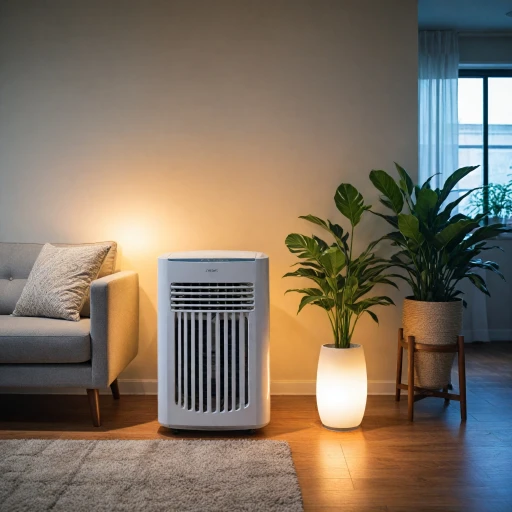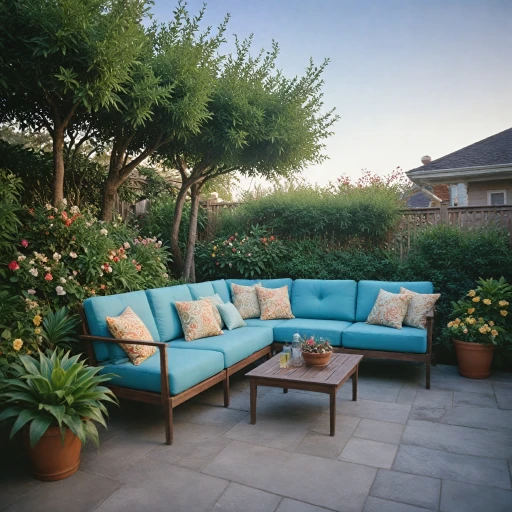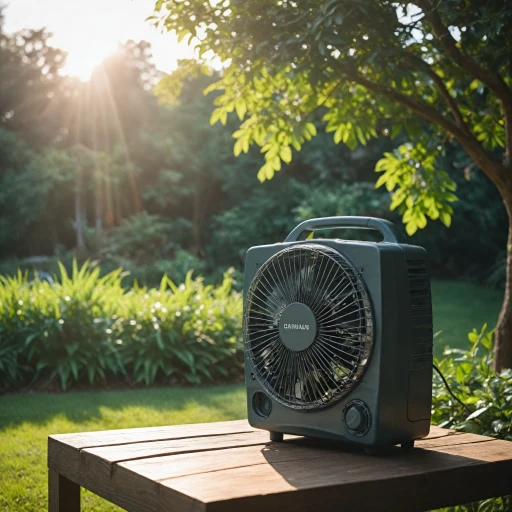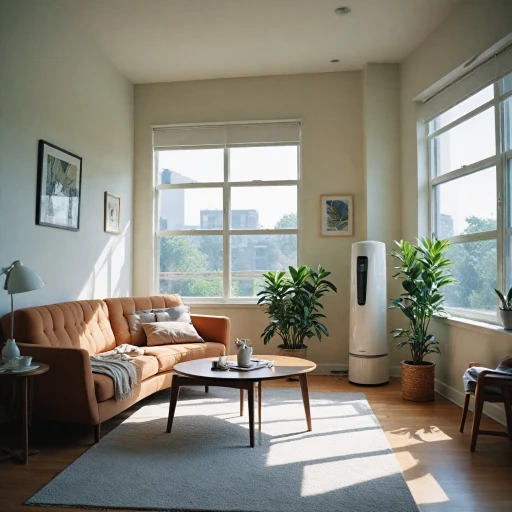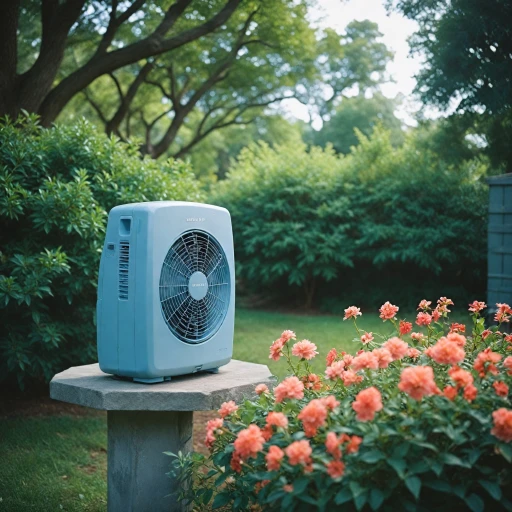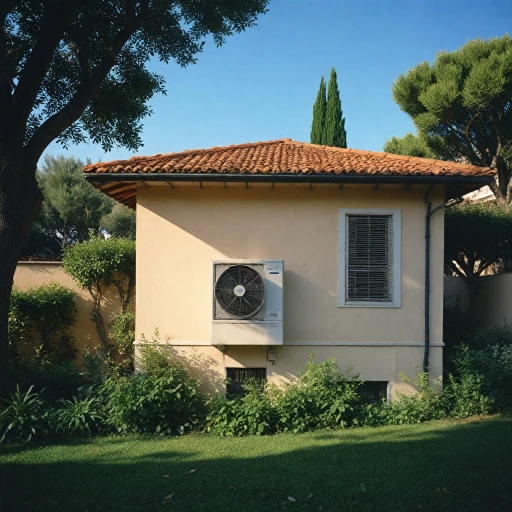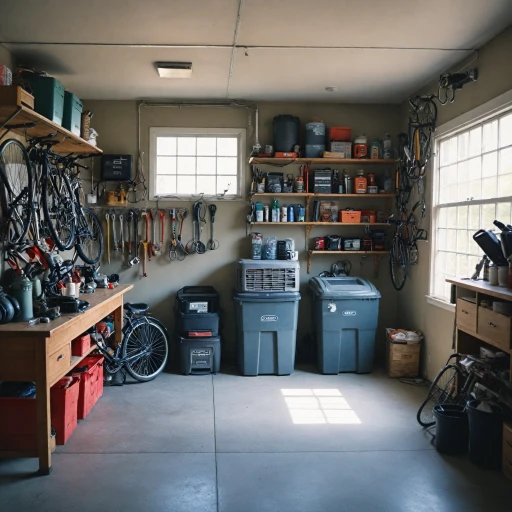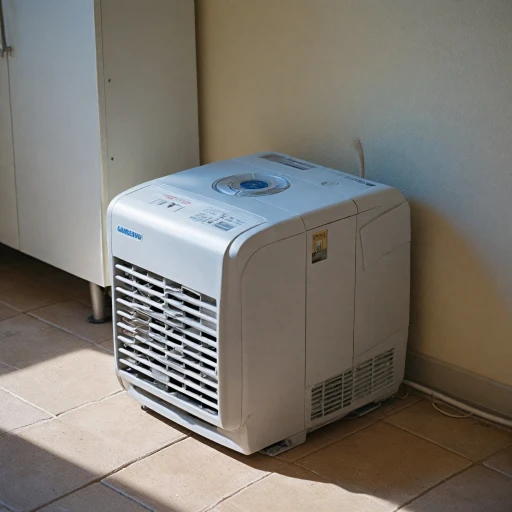
What is a Ventless Portable Air Conditioning Unit?
Exploring the Concept of Ventless Portable Air Conditioning
Ventless portable air conditioning units, often referred to as evaporative air coolers, are a unique solution for those seeking a cooling option without the need for extensive installation. Unlike traditional portable air conditioners that require a window or exhaust hose to expel hot air, ventless units use a different mechanism to cool the air.
These units work by utilizing the natural process of evaporation. Water is drawn from a tank within the unit and passed over a cooling pad. A fan then blows air through the pad, causing the water to evaporate and cool the air. This cooled air is then circulated throughout the room, providing a refreshing breeze.
Ventless portable air conditioners are particularly appealing for their simplicity and ease of use. They typically come with a remote control for convenient operation, allowing you to adjust settings without having to get up. Moreover, these units are often more energy-efficient compared to traditional models, making them a cost-effective choice for many households.
While ventless units offer a quick and easy way to cool a room, it's important to understand their limitations and ideal usage scenarios, which will be discussed further in the following sections. For those interested in a deeper dive into the workings of these units, you can explore more about ventless portable air conditioners.
Benefits of Ventless Portable Air Conditioners
Why Choose Ventless Cooling Solutions?
Ventless portable air conditioners offer a distinctive approach to keeping your environment comfortable. Unlike traditional units that rely on exhaust hoses and window access, these models use innovative evaporative cooling technologies to achieve a cooling effect.- Energy Efficiency: Ventless units consume less power as they don't use compressors like typical air conditioners. This makes them a more energy-efficient choice for cooling your room.
- Portability: These units are standalone and don't require permanent installation. Easily move them from room to room to maintain comfort wherever you go.
- Easy Maintenance: With no exhaust hose to manage, ventless coolers reduce the hassle of set-up. Regular maintenance typically includes cleaning filters and ensuring water levels are adequate for optimal performance.
- Environmentally Friendly: Ventless models do not use refrigerants, which can be harmful to the environment, thereby providing an eco-friendlier alternative to traditional conditioners.
- Cost-Effectiveness: They generally have a lower initial purchase price compared to their traditional counterparts, making them a budget-friendly solution.
Limitations and Considerations
Understanding the Challenges of Ventless Portable Air Conditioners
While ventless portable air conditioning units offer a range of benefits, they also come with certain limitations that potential buyers should consider. Understanding these challenges can help you make an informed decision when selecting the right cooling solution for your needs.
Cooling Efficiency and BTU Ratings
One of the primary considerations is the cooling efficiency of ventless units. Unlike traditional portable air conditioners, which use a mini split or dual hose system to expel hot air, ventless models rely on evaporative cooling. This method can be less effective in humid climates, as the air cooler depends on the evaporation of water to reduce temperatures. Additionally, the BTU (British Thermal Unit) ratings of ventless units might not match those of conventional portable ACs, impacting their ability to cool larger spaces effectively.
Humidity and Climate Considerations
Ventless air conditioners are best suited for dry climates. In areas with high humidity, the evaporative process can struggle to provide significant cooling. This limitation means that in humid environments, users might find that these units act more like fans than true air conditioners, offering limited relief from the heat.
Energy Consumption and Cost
While ventless units can save energy compared to traditional models, their effectiveness in cooling a room might require them to run longer to achieve the desired temperature. This extended operation can offset some of the energy savings, especially in less-than-ideal conditions. Additionally, the cost of water consumption should be considered, as these units require a continuous supply of water to function properly.
Maintenance and Upkeep
Regular maintenance is crucial for ventless portable air conditioners. Users need to ensure that the water reservoir is consistently filled and that the unit is cleaned to prevent mold and mildew growth. This upkeep can be more demanding than with traditional portable air conditioners, which typically require less frequent maintenance.
By weighing these limitations against the benefits discussed earlier, you can determine whether a ventless portable air conditioner is the right choice for your cooling needs.
Ideal Scenarios for Using Ventless Units
When and Where Ventless Units Shine
Ventless portable air conditioners offer unique advantages that cater to specific scenarios, making them a valuable choice. Though they function differently, they still provide efficient cooling solutions in suitable environments. Here's a quick guide on ideal settings where these units excel:- Areas with Low Humidity: Ventless models, like evaporative air coolers, work best in dry climates where humidity is less of a concern. This allows the water evaporation process to effectively cool the air without saturating the room.
- Spaces with Limited Window Access: If you have rooms with few windows, such as basements or interior offices, ventless units are a seamless fit since they require no exhaust hose to expel hot air outside.
- Temporary Cooling Needs: Great for quick fixes in cooling specific areas without a complex setup, ventless air conditioners are convenient alternatives to hooking up single or dual hose models.
- Portable and Flexible Cooling: Enjoy placing your unit where you need it most without restrictions imposed by hose logistics. These conditioners can be moved from one room to another with ease, offering mobile relief from heat.
- Energy-Conscious Scenarios: When energy saving is a priority, ventless models can provide efficient cooling with moderate power consumption, making them suitable for those looking to minimize their energy footprint.
Comparison with Traditional Portable Air Conditioners
Comparing with Traditional Portable Models
When exploring the realm of air cooling solutions, ventless portable air conditioners present a unique option. Let's delve into how these units stack up against their traditional counterparts in several significant ways.- Installation and Mobility: Ventless units offer an edge in terms of flexibility as they don’t require a window or exhaust hose setup. This makes them advantageous for rooms without easy window access or for individuals who prefer a more mobile solution. Traditional portable air conditioners typically require a window kit for venting hot air outside.
- Energy Efficiency: Ventless systems, drawing on evaporative cooling principles, tend to use less power. With proper usage, they can help save energy, as opposed to btu-heavy models which may result in higher consumption. In contrast, traditional single and dual hose units can consume more electricity, particularly if the btu rating is high.
- Maintenance Needs: Traditional portable air conditioners require regular maintenance such as cleaning or replacing filters and draining collected water. Ventless portable models generally demand less time in upkeep due to their simpler operating mechanism—essentially acting more like air coolers, reliant on water evaporation with no condensation removal process involved.
- Cooling Capacity and Climate Suitability: The conventional models shine in their capacity to cool larger spaces effectively due to higher btu ratings and the ability to exhaust hot air. Ventless units, however, are more suitable for dry climates, where they can optimize cooling effectiveness through added humidity.
Tips for Choosing the Right Unit
Making the Right Choice: Features to Look For
Choosing the right portable air conditioner can be a daunting task given the plethora of models available on the market. Here's a quick guide to help you make an informed decision when selecting a ventless unit for your cooling needs.
- Cooling Capacity (BTU): It's crucial to select a unit with the appropriate BTU (British Thermal Unit) rating for the room size. A BTU portable unit that's too high or too low for your space can result in inefficient cooling and wasted energy.
- Unit Portability: Ensure that the air conditioner is truly portable. Look for features like caster wheels and a lightweight design for ease of movement from room to room.
- Air Flow and Fan Speed: Consider models with variable fan speed and air flow control. This feature gives you the flexibility to adjust settings based on your cooling preference and current room conditions.
- Energy Efficiency: Since ventless units work differently from traditional air conditioners, check for energy-saving features such as programmable timers and sleep modes to help reduce electricity consumption.
- Remote Control Accessibility: For convenience, opt for a model that comes with a remote control, allowing you to adjust settings without physically being near the unit.
- Noise Level: For some, the noise of a cooling unit is a deciding factor. Read reviews and specifications to ensure the unit operates quietly, especially if it's intended for a bedroom or a home office.
- Water Management System: Since evaporative air conditioners add moisture to the air, look for features that optimize moisture control, maintaining comfortable humidity levels without overhydrating the space.
- Ease of Use and Set-Up: Consider how easy the unit is to set up and operate. Models with user-friendly controls and a hassle-free installation process are generally preferred.
By considering these features, you'll be well-equipped to choose a ventless portable air conditioner that suits your specific needs, ensuring effective and efficient cooling in your space.

